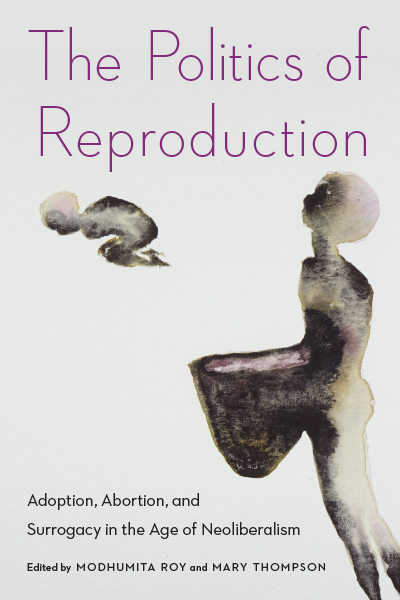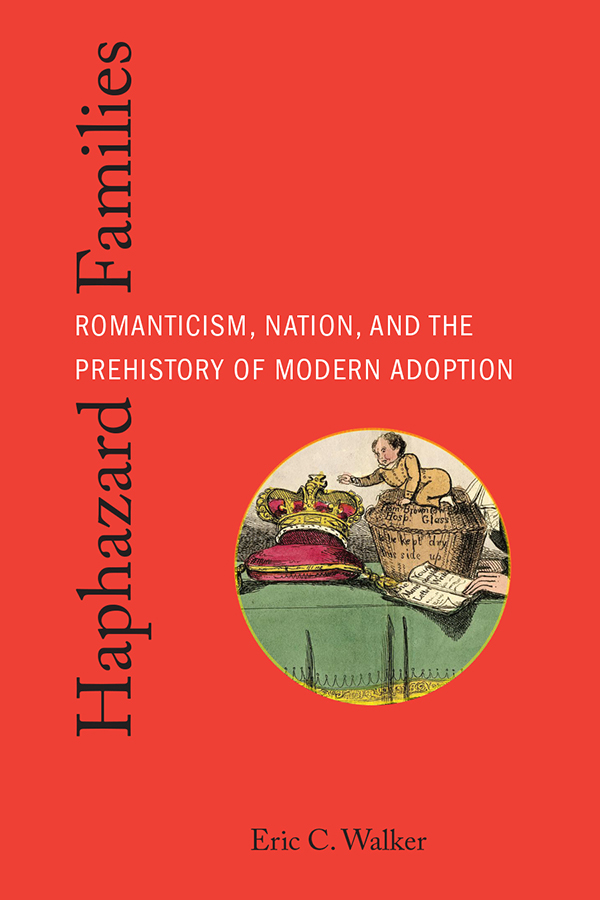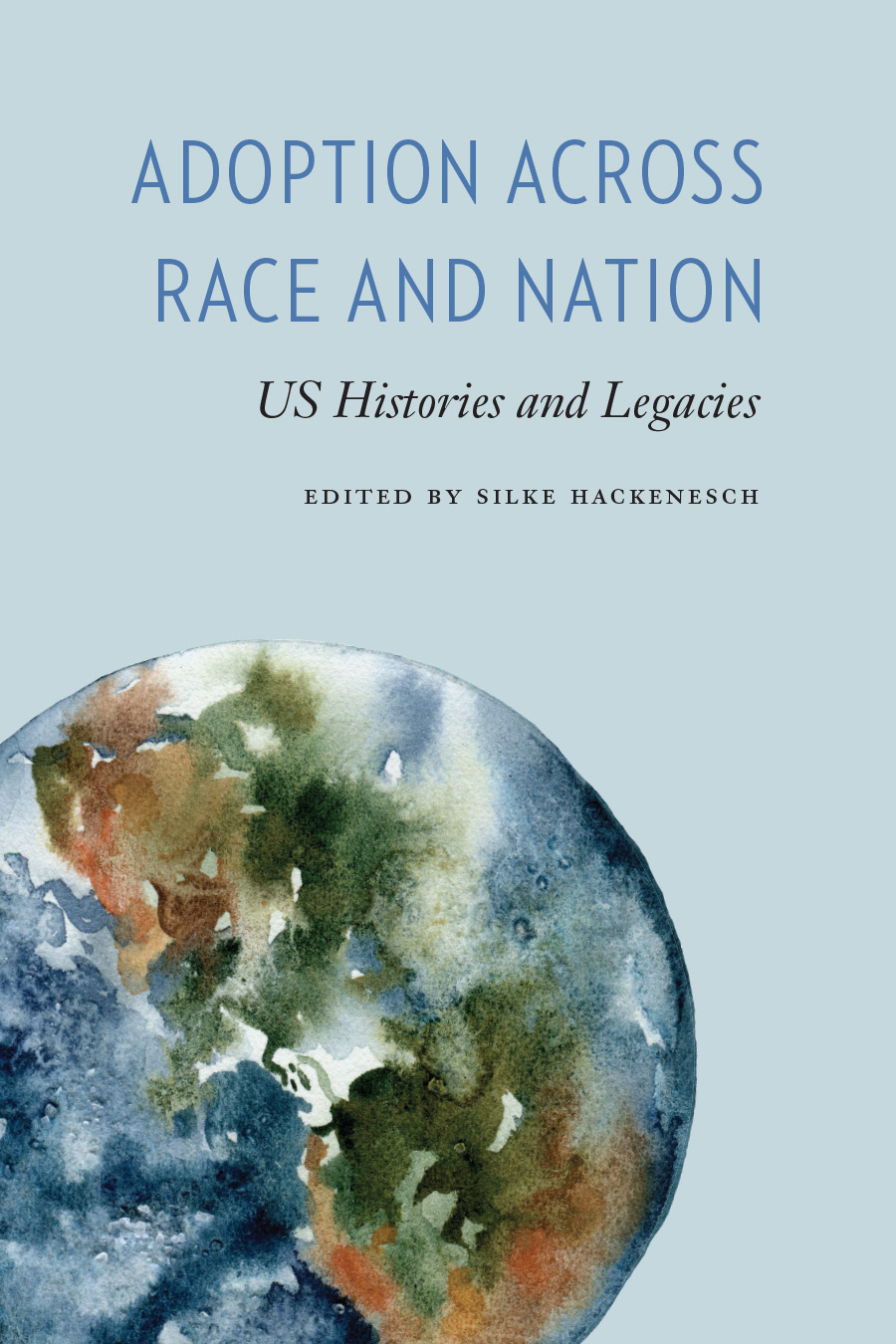Read an interview with Eric C. Walker in Adoption & Culture
“In an illuminating and empathic study, Walker never loses sight of the stakes for lives lived.” —Tess O’Toole, Nineteenth-Century Contexts
“Walker’s interdisciplinary range generates new insights about familiar figures and stories....[his] achievement is to successfully move such examples out of the realm of isolated anecdote and into an historical and theoretical framework that reveals their larger significance for ideals of British national and family identity.” —Teresa Michals, Studies in Romanticism
“Walker adds importantly to the literature of the Romantic child....He demonstrates powerfully that the question of who gets to count as a person lies at the core of Romanticism’s role, for better and for worse, in modernity....An important contribution.” —D. B. Ruderman, European Romantic Review
“The abundance of adoption stories in Haphazard Families, told across a range of genres and texts, has critical force in itself. The real strength of the volume, however, is its insistence that we interrogate our ideological investments in the figure of the Romantic child and the ideal of the family and grapple fully with who bears their burden.” —Ann Wierda Rowland, Review 19
“We can be grateful to Walker for tracing this intellectual history and for making visible these uncannily resonant adoption stories, long buried in the archive and now brought compellingly to light.” —Margaret Homans, Adoption & Culture
There are no provisions for adoption in English common law, and adoption wasn't legally formalized in England and Wales until 1926. But a century earlier, untimely adoptions navigated the new exceptionalism of childhood in Romanticism. In Haphazard Families, Eric C. Walker explores the history of the adopted child in Romantic-era England. Taking up the stories of both fictional and historical adoptees, he demonstrates how these children, diminished to nonpersons, shouldered the burden of social constructs of nation, family, gender, and class. Walker further demonstrates how Rousseau’s infamous failure to follow his own ideals of parenthood shaped British reactions in famous texts such as Frankenstein and Emma. Incorporating perspectives from Romantic scholarship and critical adoption studies and examining the stories of adopted children associated with Queen Caroline, Anna Letitia Barbauld, Jane Austen, the Wordsworth siblings, Mary Shelley, Charles and Mary Lamb, Letitia Landon, and others, Haphazard Families considers how Romantic constructions of childhood supply foundational structures of modern adoptee subjectivity.
Eric C. Walker is Professor Emeritus of English at Florida State University, where he was department chair and a University Distinguished Teaching Professor. He is the author of Marriage, Writing, and Romanticism: Wordsworth and Austen after War, which won the South Atlantic Modern Language Association Book Award.
Contents
List of Illustrations
Preface
Acknowledgments
Introduction Thérèse Levasseur’s Lost Children
Chapter 1 The Burden of Romantic Childhood
Chapter 2 National Children: The Madness of William Austin
Chapter 3 Natural Children: Jane Austen and Adoption
Chapter 4 Abandoned Children: Mary Shelley, Rousseau, and Frankenstein
Chapter 5 Unexplained Children: Basil Caroline Montagu and the Wordsworth Circle
Chapter 6 Found Children: Emma Isola and Charles and Mary Lamb
Conclusion Untimely Adoption
Appendix Austen Family Accounts of the Edward Austen Adoption
Bibliography
Index
“Examining important figures through the children they abandoned, adopted, and imagined abandoning and adopting, Walker illuminates the Romantic era by putting de facto adoption at the center of British Romanticism. His insightful analysis of the lives of real and fictional orphans adds an important chapter to the known history of adoption.” —Elisabeth Wesseling, editor of The Child Savage, 1890–2010: From Comics to Games
“Adding an important new chapter to the history of adoption, Haphazard Families shows how the transfer of children from one home to another shaped British culture. Walker’s absorbing case studies illuminate the development of the Romantics’ valorization of children.” —Sarah Raff, author of Jane Austen’s Erotic Advice
Related Titles:

The Politics of Reproduction
Adoption, Abortion, and Surrogacy in the Age of Neoliberalism
Edited by Modhumita Roy and Mary Thompson




